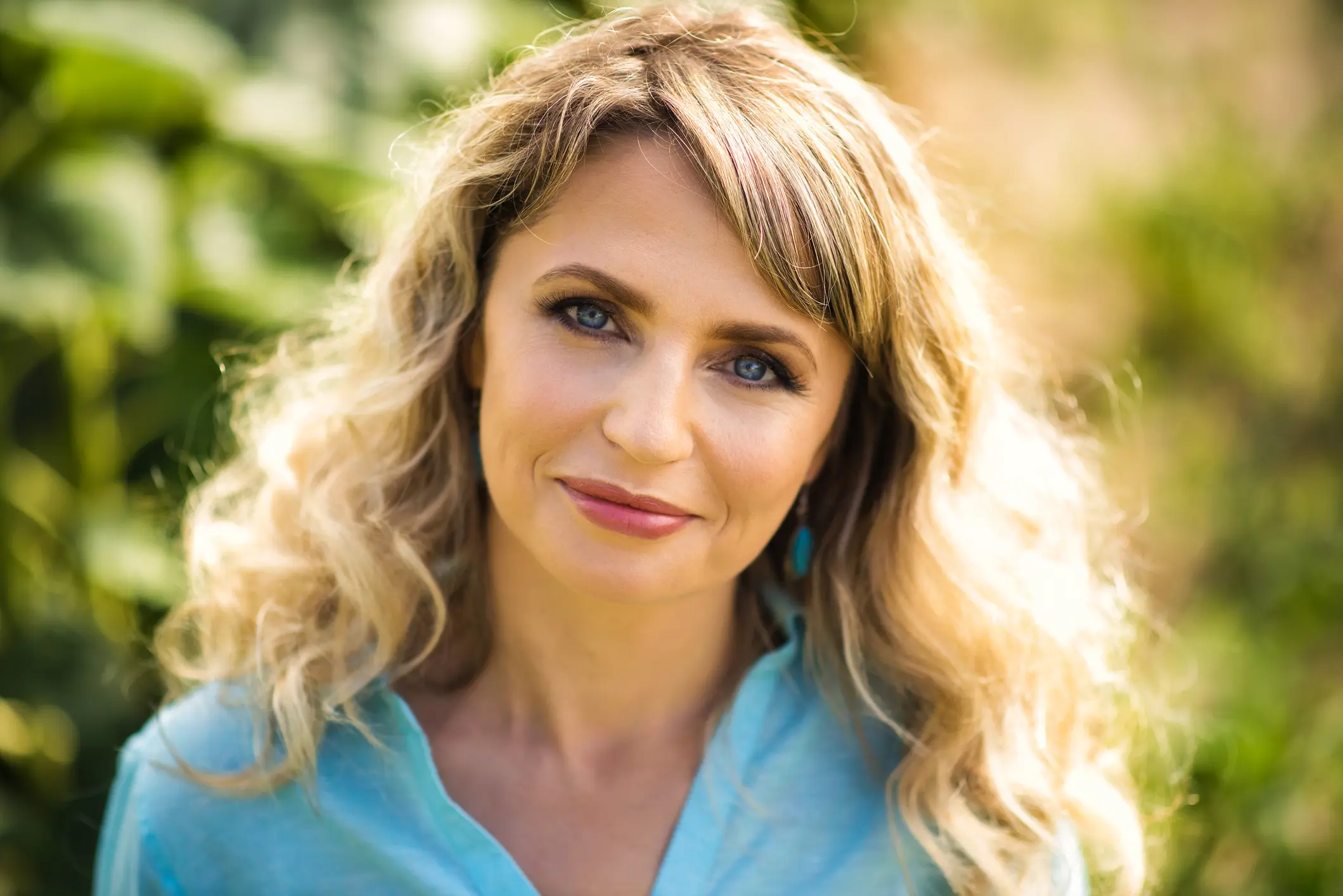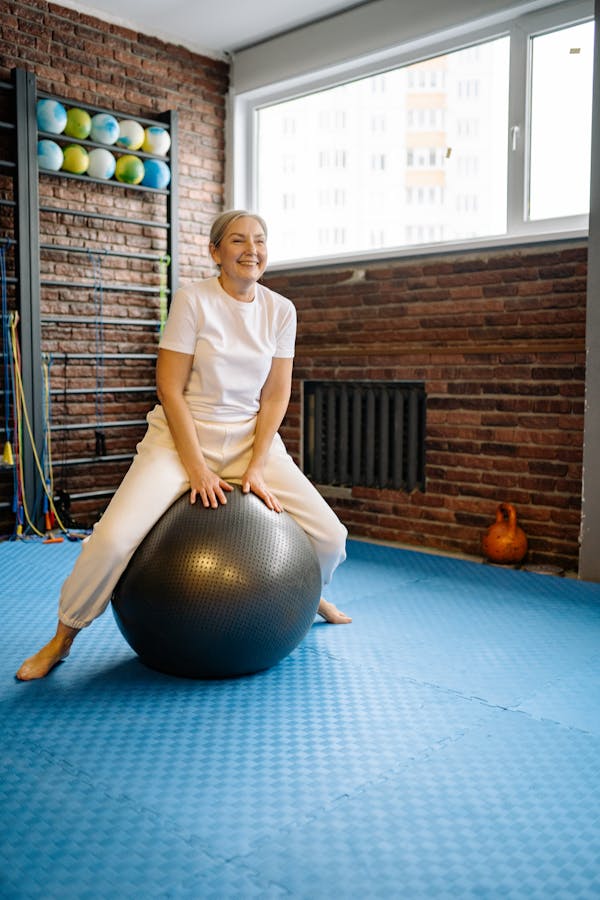When I turned 40, I thought I knew what to expect: maybe a few wrinkles, a slower metabolism, and the occasional gray hair (I started to dye my hair a few years back). Now that I’m 43 – almost 44 – I can tell you I was only half right. What really surprised me were the deeper, quieter, more powerful changes happening in my body, my emotions, and my relationships.
If you’re wondering what happens to a woman’s body at 40, or what kind of psychological and emotional changes women go through in their 40s, I’m right there with you. Some of it is physical (hello, metabolism slowdown), some hormonal (perimenopause is real), and some social and emotional. But here’s the thing: it’s all totally normal – and honestly, a lot of it feels freeing once you understand what’s going on.
I am writing this article about what happens when a woman turns 40 because I did not pay much attention to the issue when I turned 40. It was a new decade starting, all promises, expectations, plans.
Now I see that there is a lot more to it.
And it is best to know – to be prepared. To know what to expect.
Physical Changes in Your 40s: When Your Body Says Hello, Midlife
ID 179109007 ©Albina Sazheniuk | Dreamstime.com
The first big surprise came around 41. I noticed my jeans fit differently, even though my weight hadn’t changed. I was more tired after chores. My skin felt drier. And sometimes, when I reached for my phone, I had to squint to read the text. (I have glasses for distance, but I was always able to read a book or my phone without glasses.)
Welcome to your 40s – where metabolism changes after 40 meets vision changes, hormonal shifts, and a new kind of body awareness.
Metabolism and Muscle Mass
Studies show that women begin to lose lean muscle mass in their 40s, which naturally slows metabolism. This process – called sarcopenia – can start as early as your mid-40s, even if you’re active and eat well, according to the National Institute on Aging.
Adults naturally lose ~3–5% of muscle mass per decade starting around age 30, which helps explain why metabolism feels different in your 40s – even with a similar diet and activity. It’s not failure; it’s physiology, and it can be slowed with strength training and protein.
The fix? I started increasing protein (I cannot do sports because of my knee condition). In fact, protein becomes VERY important for women over 40 – I wrote a whole article on how much protein you need, why, and where to get it (all backed by studies!).
I also learned that the slowdown isn’t failure – it’s biology. Hormones like estrogen and progesterone affect how our bodies store fat, use energy, and recover after exercise.
A fascinating Stanford Medicine study showed that in our mid-40s, our metabolism, immune system, and even gut microbes undergo a dramatic shift – like a molecular reset button. So if your energy or body composition feels different, it’s not your imagination – it’s science.
Vision, Skin, and Recovery Time
As you turn 40, you will notice that you may hold your phone further and further away. Or blurred vision at normal distance. That’s presbyopia – the fancy term for age-related farsightedness – and it’s nearly universal after 40. (American Optometric Association).
My skin also began feeling drier and thinner. Aging skin “dries, thins, and loses some of its resilience,” according to Harvard Health. Further, scientific research shows that the ability to replenish collagen naturally decreases by about 1% per year, leading to thinner, less elastic skin over time.
Even recovery changed – I’d bounce back slower after workouts or long days. According to the Wall Street Journal, midlife brings a measurable decline in biological resilience. It’s not about weakness – it’s your body asking for more intentional rest and recovery.
I actually noticed this on my travels, too. I am doing less each day – in terms of places visited – than I did in my 20s and 30s.
Sleep and Energy: Why 8 Hours Doesn’t Feel the Same Anymore
Another thing I didn’t expect in my 40s? How different sleep would feel. I used to fall asleep instantly, but somewhere around 41, I began waking up at 3 a.m. for no reason. At first, I thought it was stress, but research shows that hormonal shifts – especially the drop in progesterone – can disrupt the sleep cycle and make deep sleep harder to maintain.
According to the Sleep Foundation, during the perimenopause transition, many women report more frequent waking, night sweats, and fragmented sleep.
Lower estrogen can trigger night sweats and hot flashes; lower progesterone means less natural “sleep hormone” support.
I learned to make small changes that helped – cutting caffeine after 2 p.m. (I actually do not drink it after 12 p.m.), keeping my room cooler, and using a weighted blanket. And when I finally gave myself permission to rest more (instead of pushing through), my focus and mood improved dramatically.
Bone, Joint, and Heart Health: The Silent Shifts
What I didn’t expect: my knees would start “talking back.” Tiny joint aches I used to brush off lingered longer. Bone density naturally begins to decline around age 40 and accelerates as estrogen drops, putting many women in their 40s at increased risk for osteoporosis. The NIH
notes the rate of bone loss increases during the menopause transition.
As I already have knee issues, for me, this is a bad thing. I am paying attention to it!
This is the decade to add calcium, vitamin D, and weight-bearing exercises – not just to be thinner, but to be stronger. It’s also when cardiovascular changes can quietly creep in. The American Heart Association explains that hormonal shifts during midlife – especially the drop in estrogen – can affect blood-vessel elasticity and cholesterol balance. So those checkups you used to skip? Now they really matter.
The Brain & Mind: Cognitive and Psychological Changes in Your 40s
Around 42, I started experiencing small “brain blips” – forgetting names or walking into a room and thinking, “Why did I come here?” It felt unsettling at first. But according to Harvard Health Publishing, this kind of cognitive shift often accompanies perimenopause. Fluctuating estrogen levels affect neurotransmitters like serotonin and dopamine, which influence memory, focus, and mood.
I learned that what I thought was “brain fog” was actually my brain adjusting to hormonal fluctuations. Once I improved sleep, hydration, and added omega-3s, the fog lifted noticeably.
Interestingly, neuropsychologists note that emotional intelligence peaks in midlife – meaning while short-term recall might fluctuate, empathy, reasoning, and big-picture thinking grow stronger. That’s a trade-off I’ll take.
The Confidence Surge: The Psychological Glow-Up of the 40s
I didn’t expect my 40s to be the decade I’d finally stop caring so much about what people think. There’s research to back this up, too. Studies show that women in their 40s often experience increased self-confidence and emotional stability as identity solidifies and social comparison wanes.
It’s not arrogance – it’s clarity. I started setting firmer boundaries. I said no more often. I prioritized peace over approval.
According to research, happiness often dips slightly in the early 40s before rebounding higher in later years – a classic “U-shaped curve” of wellbeing. Once you push through the uncertainty, joy actually rises. I can confirm that’s true – but you will have to find ways to be happy!
The Hormonal Rollercoaster: Perimenopause in Your 40s
No one really told me that perimenopause in your 40s can start years before menopause itself. Around 42, I noticed subtle shifts – periods changing rhythm, occasional hot flashes, disrupted sleep, and mood swings that made no sense.
I thought I was stressed – but it was my hormones.
Perimenopause can begin as early as your late 30s. It’s a gradual transition lasting four to ten years, during which estrogen and progesterone fluctuate unpredictably.
Knowing that changed everything. I started tracking symptoms, talking to my doctor, and exploring nutrition and mindfulness. Realizing this was biological, not personal failure, gave me peace.
Weight Gaining
What I didn’t realize then was that perimenopause also changes how your body handles calories and fat storage. Even if your habits stay the same, fluctuating estrogen levels can lead to a redistribution of fat – especially around the abdomen.
Metabolism naturally slows in the 40s, but hormonal changes can make it harder to maintain previous weight without small adjustments. For me, focusing on protein, resistance training, and consistent sleep helped far more than any diet trend.
I stopped chasing “skinny” and started aiming for “strong” – and that mindset shift made all the difference.
Social and Emotional Changes After 40: Redefining Relationships and Purpose
ID 64657681 ©Goodluz | Dreamstime.com
One of the biggest emotional surprises was how my social world changed.
My circle got smaller – but stronger. Friendships became even more about authenticity, not frequency.
What surprised me most, though, was how many friendships quietly faded. Some friends grew busier with teenagers; others moved away or simply drifted. At first, I felt lonely – almost like something was wrong with me. But psychologists say this is completely normal.
Research from Michigan State University found that friendships have a stronger impact on long-term happiness and health than even family relationships, especially for women. That’s why in my 40s, I learned to be intentional: I reach out, schedule dinners, send messages. Because friendship in this decade doesn’t just happen – it’s something you nurture.
There’s a beautiful side to this: life after 40 for women often brings deeper connection, less pretense, and more value alignment. The Harvard Study of Adult Development found that meaningful relationships – not money, not status – are the strongest predictors of lifelong happiness.
I also became part of the “sandwich generation” – raising a teenager while helping aging parents. It’s challenging, yes, but it’s also grounding. You start seeing life in a wider perspective – less about control, more about compassion.
Career-wise, I stopped chasing big clients and focused more on what I love to do. And many of my coaching clients around my age start chasing meaning.
I am doing things my way 20+ years now – I work for me, not a company. I care less about “impressing” and more about “expressing.” That shift, I think, is one of the healthiest psychological changes of midlife.
Mindset and Meaning: Redefining Success in Your 40s
ID 65339615 ©Goodluz | Dreamstime.com
Something shifted around 43. I began to see “success” differently. For most of my 30s, it meant achievement, output, productivity. But in my 40s, I started craving alignment instead – work that feels purposeful, not just profitable.
Psychologists describe this as a midlife recalibration rather than a crisis. According to Harvard Business Review, women often enter a phase of reevaluation in their 40s and 50s, reassessing career paths, values, and balance.
For me, that meant learning to trust my intuition more. I’m still ambitious – but I’ve also learned that rest and joy are productive, too.
How to Thrive in Your 40s: Practical Shifts That Changed My Life
I am not an expert. But after learning all this, I started making small but powerful changes:
I began small exercises – physical therapy-like (I did many for my lower back issue anyway) – to support bone density and muscle mass. I paid attention to protein, hydration, and rest.
I improved my sleep hygiene (dark room, no screens, magnesium before bed). I booked regular checkups without guilt.
And perhaps most importantly, I gave myself permission to slow down. I stopped treating rest as weakness.
The result? I still have a long way to go. I want to lose some weight. I want to resolve my knee issue. But I am paying more attention now to what and how I eat, to what I do, and to my rhythm.
I cannot say I “reversed aging,” but I finally learned how to work with my body instead of against it.
This Isn’t Decline – It’s Redefinition
Now that I’m 43, I can say with full honesty: my 40s have been both humbling and empowering. My body has changed. My mind has sharpened in new ways. My relationships have deepened.
What happens to a woman’s body at 40 isn’t just biology – it’s a rebirth of perspective. These years are not about losing youth – they’re about gaining depth.
If you’re stepping into your 40s, don’t fear the changes. Learn them, embrace them, and make them work for you. Because this decade? It’s not the end of something – it’s the most honest beginning yet.
So if you’re wondering what happens to a woman’s body at 40 – or how your emotions, metabolism, and mindset evolve in this decade – the truth is that everything changes a little. These are the years when life after 40 for women becomes richer, wiser, and surprisingly fulfilling.
The physical changes in your 40s, the psychological shifts, and even the perimenopause surprises are all part of your body’s brilliant design to help you grow into your next chapter – stronger, calmer, and more you than ever.
Frequently Asked Questions About Life After 40 for Women
Do women really change a lot in their 40s?
Yes – physically, hormonally, emotionally, and socially. From slower metabolism and hormonal fluctuations to shifts in priorities and self-acceptance, the 40s are a decade of recalibration, not decline.
What are the first signs of perimenopause for women in their 40s?
Irregular periods, hot flashes, mood changes, and sleep disruptions are common. You may also notice changes in libido, concentration, and weight distribution.
Does metabolism really slow for women after 40?
Yes, partly due to declining estrogen and muscle mass. Regular strength training and mindful nutrition help maintain balance.
Are mood swings normal in your 40s?
Completely. Hormonal changes, stress, and life transitions combine here. Therapy, mindfulness, and self-care are powerful tools.
What can I do to stay healthy after 40?
Prioritize strength, rest, and relationships. Stay active, eat whole foods, manage stress, and check in regularly with your doctor.








